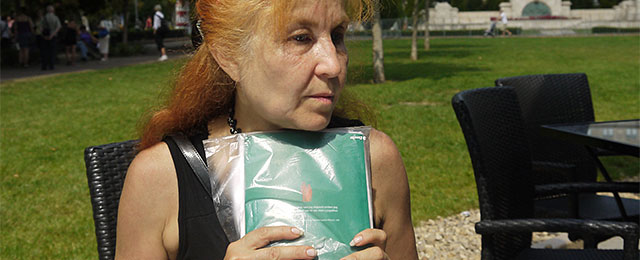Protecting the Stateless | A legal limbo

UNHCR helps people who are forced to flee their homes. But we are also concerned about the stateless – individuals who lack nationality and citizenship and exist in a terrible limbo where they cannot participate fully in society and or enjoy basic human rights.
People can be stateless for a variety of reasons, including inequitable laws (such as marriage statutes), transfers of territory between countries, flawed or discriminatory administrative practices, lack of birth registration, and the withdrawal or renunciation of citizenship rights. Today, statelessness remains a serious problem, affecting an estimated 12 million people around the world who live without a nationality in a legal limbo.
By global standards, statelessness is not a major issue in Central Europe. But some countries in the region do have significant numbers of stateless people. Slovakia and Poland each have an estimated 1,000 stateless people living within their borders. In Slovenia, where a certain people lost legal status after the country declared its independence from Yugoslavia in 1991, the exact number of stateless people is unknown, but may be significant.
UNHCR works with governments to prevent statelessness,, resolve those cases that do occur, and defend the rights of stateless people around the world.
In Central Europe, UNHCR urges countries to recognize the 1954 Convention Relating to the Status of Stateless Persons and the 1961 Convention on the Reduction of Statelessness. Out of the seven countries that UNHCR Central Europe oversees, only Poland and Slovenia are not yet parties to one or both of the agreements.
Although other countries do recognize the conventions, most have no mechanism to identify stateless people and protect them. Hungary has had mechanisms to recognize and protect stateless people since 2007, and is an international model of good practice. Still there is room for improvement for Hungary’s stateless determination procedure.
UNHCR is actively lobbying countries to adopt laws and mechanisms to solve the problem of statelessness, and ensure that people everywhere enjoy basic human rights and citizenship.
